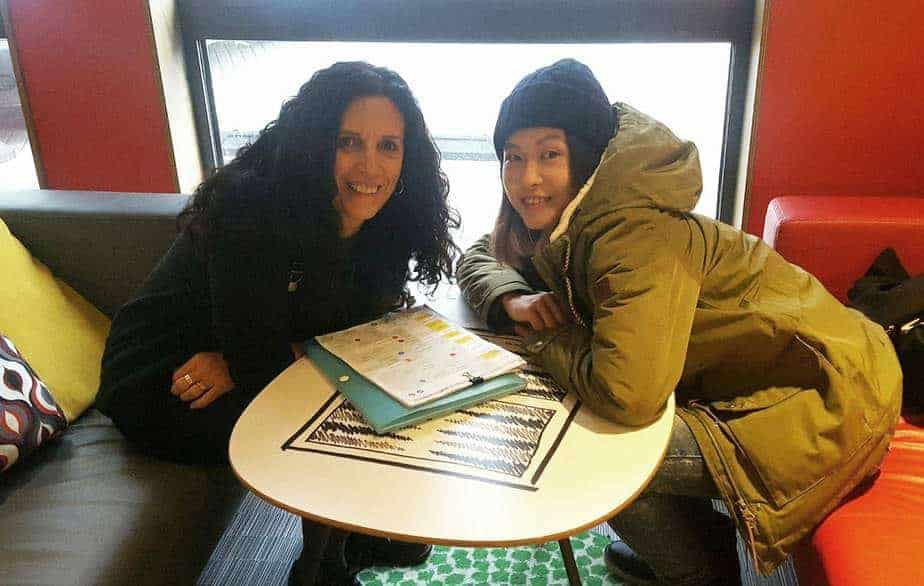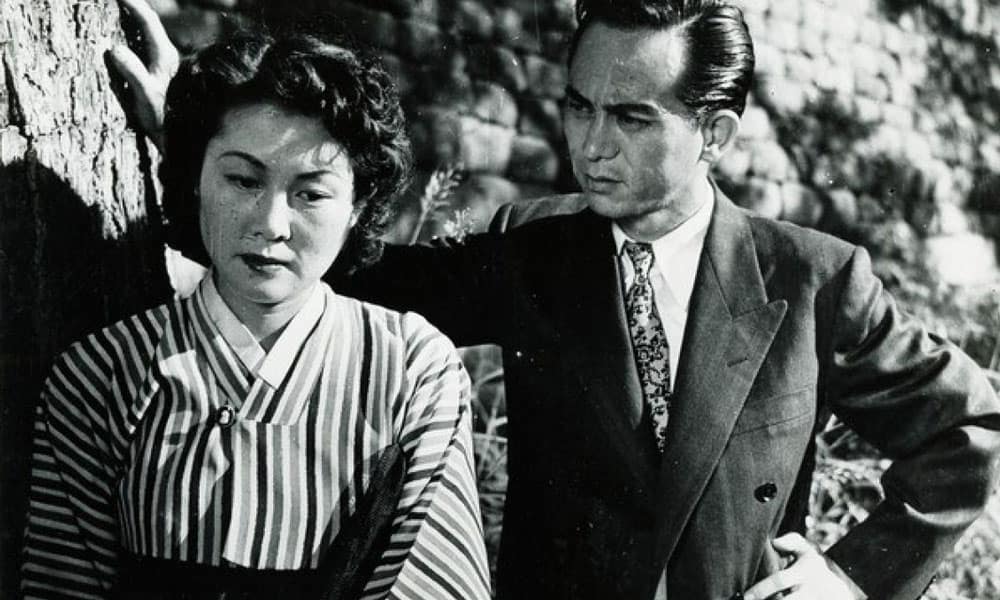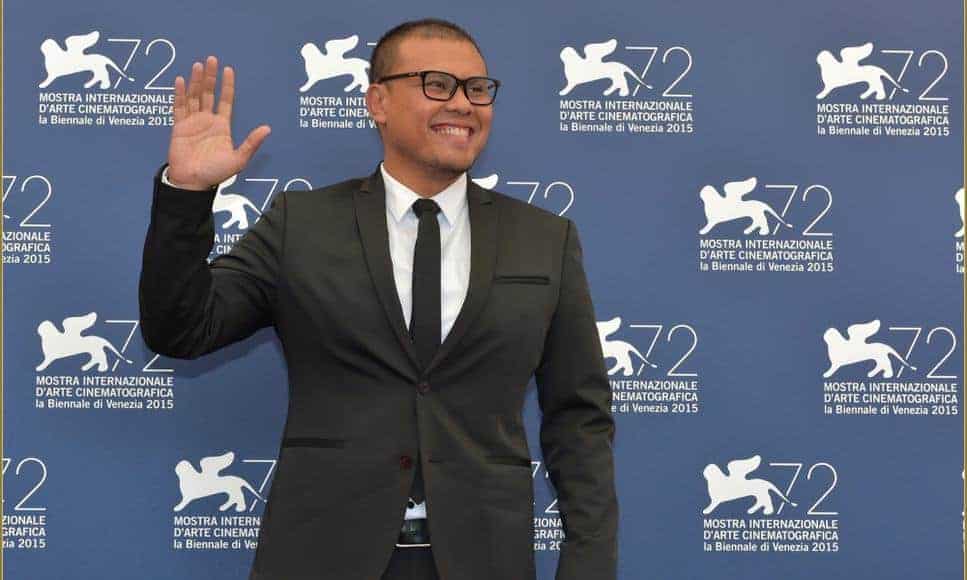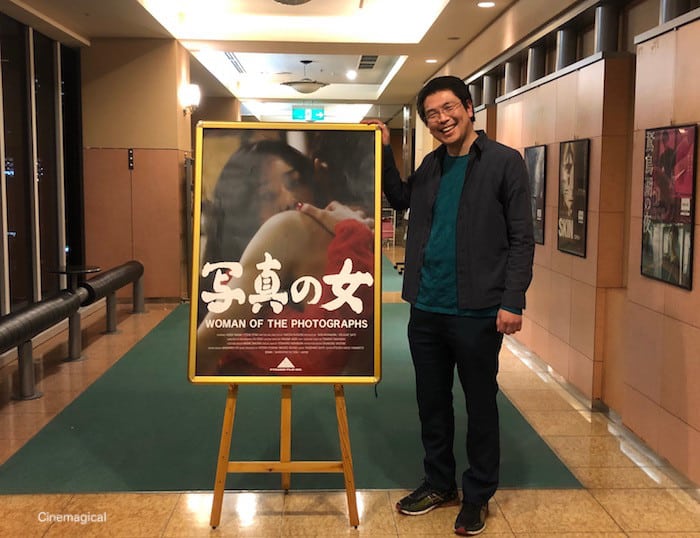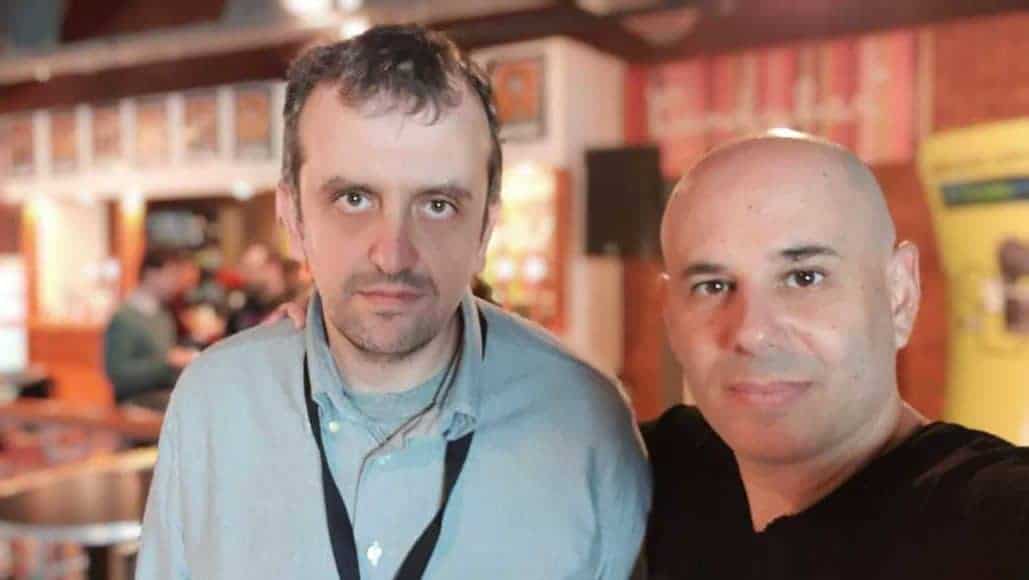Rishi Chandna is a self-taught filmmaker based in Mumbai. As a writer-director-producer, he has created content that ranges from digital commercials to audio-video installations, which have shown at the MoMA, Venice Biennale of Architecture, and the MAK Museum Vienna. His debut short film, “Tungrus” (2018), traveled to more than 150 international festivals (including Hot Docs, BFI London Film Festival, and IDFA,) won 28 awards, and became an Oscar-qualifying documentary after winning the 2019 Slamdance Film Festival. “Tungrus” was released online on the NYT Op-Docs platform as well as on The Criterion Channel. Chandna's upcoming short film “Party Poster” is a hybrid satire about a community of laundrymen wanting to celebrate a religious festival in the face of a pandemic.
We speak with him about the inspiration behind the film, the family that “hosted” the rooster, the unusual format of the documentary, humor and comedy, the fate of the rooster, and many other topics.
What inspired you to shoot a film about a rooster?
From very early on, I felt there was something dramatic and absurd in the situation that family had created for themselves. I have never heard of a family living in a city like Bombay, where space is a luxury, trying to share the space in a cramped apartment with an animal like a rooster. It sounded like a completely absurd situation to me and I found that quite inspiring. In addition, there were so many themes that emerged in my mind when I learnt about this family, about our relationship with animals, with pets, with food and also about the concept of the insider and the outsider. To me, this could become an allegory about how we relate to people, how we relate to the idea of the “other”, of the outsider in our lives. I was very inspired by these layers of thought.
How did you learn about the family though?
I learned about them through my co-producer. Actually, we were very lucky to find the story or rather, the story finding us because you cannot go out looking for such a story in real life. My co-producer was working in the same office as the younger son in the film, Shameer Bharde. They were friends and colleagues. One day over lunch, he told my friend that his father had brought a chicken in the house six months ago and life, since then, has turned upside down. When my co-producer told me about this situation, I was really inspired and thought that I would like to shoot something about this. Therefore, I asked to be introduced to the son, and I spoke with him first. I told him that I am a filmmaker and that I would like to shoot a short documentary about this. He liked the idea, he introduced me to his parents and his other brother, and I explained to them how we will work and what we were going to do and they agreed. That is how we got access to the characters in the documentary.
So, it was not that difficult getting them to trust you, and open their home to you?
No. I think most people are looking for some kind of catharsis in life, for someone to talk to about the issues in their life. As a documentary filmmaker, I could tell that they were in a genuine situation with this chicken. They were having real problems. And since they were a meat-eating family, they were in a moral dilemma as to what they should do. I could tell that they wanted to talk, that they needed to talk to somebody, and the camera would give them that. In addition, I feel that they are a progressive, intelligent family, so they were able to also see the black humor in their own situation. Furthermore, because I was introduced to them through a connection, it became easier to get access. If I was a complete stranger, it would have been much more difficult for them to trust me.
And besides this, India is such a cinema-crazy country, and so they were genuinely interested in the shooting, they kept asking me what I was going to do with the film, how will I shoot it; they were interested in participating in something new for the first time in their lives. Of course, we did not imagine that the film would be so successful and make them a bit famous
So, it was also a kind of a psychotherapy for them, especially for the members apart the father?
Exactly. The documentary implements the classic talking-heads approach, which a lot of filmmakers are quite averse to, but I embrace it fully. I felt that this approach, these conversations, provided them with some sort of therapy.
The film also shows the patriarchy in the family. Essentially, the father made the decision to bring a rooster in the house, and no one can go against his decision.
Now that you mention it, I felt that the father-son relationship was a bit tense and it was also a clash of cultures within that small household. The father was definitely more patriarchal, he had grown up in a village where his relationship with food was much more direct. He also mentions it in the film, that he was raised in a village where they would raise goats and chicken and when the time was right, they would kill them and eat them. However, the children, who have grown up in the city, have a more open sentimentality about pets and food and this creates a disconnection, between father and sons. There is a clash of cultures, and because of him being the alpha male in the house and this was his pet in a way, the others could not push the rooster out. It was both a patriarchal situation and also a clash of cultures.
How much time did you spend in the apartment?
Not much time actually, we shot for 6-7 days over a period of three weeks. Because when I met the family, they already had the chicken for six months and they said that they were going to move to another apartment by the end of that month. Therefore, we had only three weeks in this house with this chicken, because they thought that they would move WITH the chicken, they could not take him with them. They told me I had three weeks to shoot, and so I spaced the shooting out over three weeks.
I was very impressed with the editing of the film, the way you managed to show the chicken doing what the family members were talking about. Can you give us some more details about both capturing the scenes with the rooster and editing them?
Since I did not have much time, my first thought, instinctively, was to spend a little time in the house just observing and speaking to the family and understanding how was life like in that small apartment with a rooster. What would be going on from the time they would be woken up by the rooster, until the evening. I wanted to understand their interactions with the animal, their relationships with it, what place the animal held in their lives and the hierarchy of pets that they had. I did that for 2-3 days before I introduced the camera. After that, because this is a hybrid documentary, it depends a lot upon your luck and your ability to stage certain things. We were very lucky with some moments, for example when the rooster is crowing or pooping, and many other moments. We decided to stage some of the scenes in a naturalistic way, and to include an element of black humor throughout the film. This approach had to be translated to the cinematic language, the camera being always on sticks, no movement, essentially trying to tell a joke without laughing.
The same applied also to the editing room. I actually did the first cut and then took it to an editor, this is how I work. Then, it was about the punch lines really. If you overplay a joke too much or if you do joke after joke after joke, the audience gets fatigued. So it was about being restrained, being a bit deadpan and a bit dry in the editing room.
Were you laughing though, when you were shooting and when you were editing?
I really did, there were times that I could not believe what was happening. My cinematographer, he came running from the next room one day, saying, “We got the rooster pooping, we got the rooster pooping”. Furthermore, the rooster would do these totally unpredictable things sometimes and I would just keep rolling, without moving. There were time I was really laughing, and when I was editing, I would smile to myself, thinking that this is really priceless, really precious.
The tone of humour for me was very important and is the kind of humor that even the viewer does not know exactly whether to laugh or not sometimes. Even the family would tell me somee things sometimes, and I could not tell if they were serious or no. For example, someone said to me that even an eagle or an owl would be fine, and I could really not tell if they were being serious. That is the kind of intelligence that they had, a unique attitude towards the camera
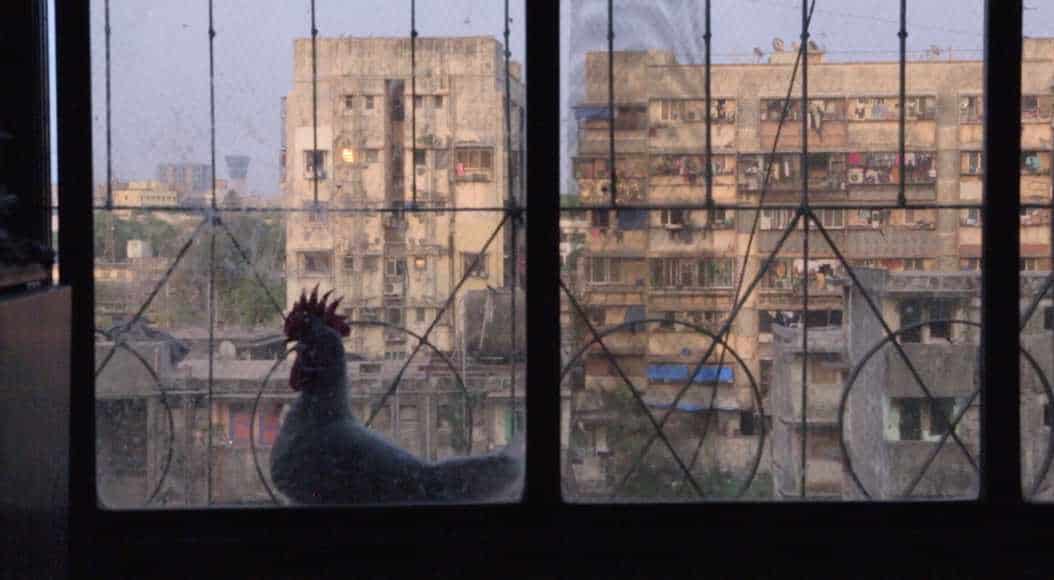
I felt the same way; at some points, the film looks like a mockumentary, you cannot say if it is real or staged.
I submitted the film to a festival, I met a programmer, and she told me that “Tungrus” is a hybrid documentary. I had no idea what a hybrid documentary was, I was just making a film. Then I learnt about the parts that made it a hybrid and I do not know where the line ends between these forms, observational, hybrid, mocumentary, but it is very interesting for me to play with the form and the boundaries. I think we need that freedom as filmmakers
So the father actually chases the rooster around the house, like a game or something.
Exactly, it was hard to believe this thing was happening even when he said it. So I wanted him to show to me, and when I learnt from him then it was all about presenting this through the language of cinema. It would have been easy to follow him and the chicken around with a handheld camera. But I think it is helpful to set certain restrictions that help you elevate the aesthetic. All kind of magic can happen after that.
So the final scene, where the rooster is butchered, is the actual end of Tungrus?
Yes, it was the last shot we took, we did not shoot anything after that.
Tungrus is actually not the name of the rooster. It is a reference to a character, as the mother mentions in the film. She says that her husband reminded her of Tungrus, whenever she sees him chasing the chicken, because the character in that film, “Mandi” is called Tungrus. There is a scene where Naseerudin Shah, who plays Tungrus, is chasing a burglar in a courtyard. The way he tries to catch him is the way one would catch a chicken. That is why we named the film “Tungrus”.
Then, what was the name of the rooster?
It did not have a name. When he first bought the chicken, it was yellow in color and they called it Mango, and Mr Bharde called it Cheeky a bit later on, but in the end, it had no name. I think because they were never sure of the status of the rooster in the household. Naming cats and dogs is easy, but they were not able to do that with the rooster, because they could not give it a status as a pet, at least not fully.
So, when the rooster was butchered, was that shocking for you?
Again, the way that worked out is according to the language of hybrid filmmaking. That was the last shot we took, and I think the family was divided about what they were going to do. We waited until the last moment to ask the father about his plan, because we were done with the interviews and he had told us that that was going to be the last day to shoot. He told us that there is a butcher right outside the house, and that he will be taking the rooster there. He told us that we were welcome to shoot it and that is how we worked with him and we created that scene. I wanted it to come as a shock to the viewer, because I had already guessed where this was going, since I had become so involved during the shooting. And also, as I mentioned before, since he was the alpha male in a patriarchal house, he had made it clear it was his decision what he was going to do with the rooster, it was his conditioning to take the chicken to the abattoir. However, I wanted to capture the whole thing in a very dispassionate way.
So did he eat it in the end, as he mentioned in the film?
After the abattoir, he took the rooster back home and we had a discussion and I even asked him what he was going to do with it, because if he was going to eat it, we would like to shoot him doing so. He told us that he did not know what he would do with it at that moment, because there was a kind of heaviness in the house, that we all felt about what happened. I think there is a line between filmmaker and subject, which was set by that point, and at that moment, I felt that we needed to back off a little bit. However, I did place a call with them about a week later and I learnt that the cats actually ate the chicken, since none of them could bring themselves to eat it. The sons were never going to eat it, but it was surprising that he did not.
So the cat got its revenge in the end.
They did (laughs)
Are you working on any new projects at the moment?
I actually shot something last year during the pandemic, so I am editing my next short film, which is called “Party Poster” and that is a very interesting film. It is basically about the political/religious system that we have here in India, which shows itself more during certain religious festivals. Besides that, I am developing my first feature fiction film, which was just selected in Sundance Screenwriters Lab in January. At the moment, I am developing the script and raising money for it. I hope to shoot next year.



